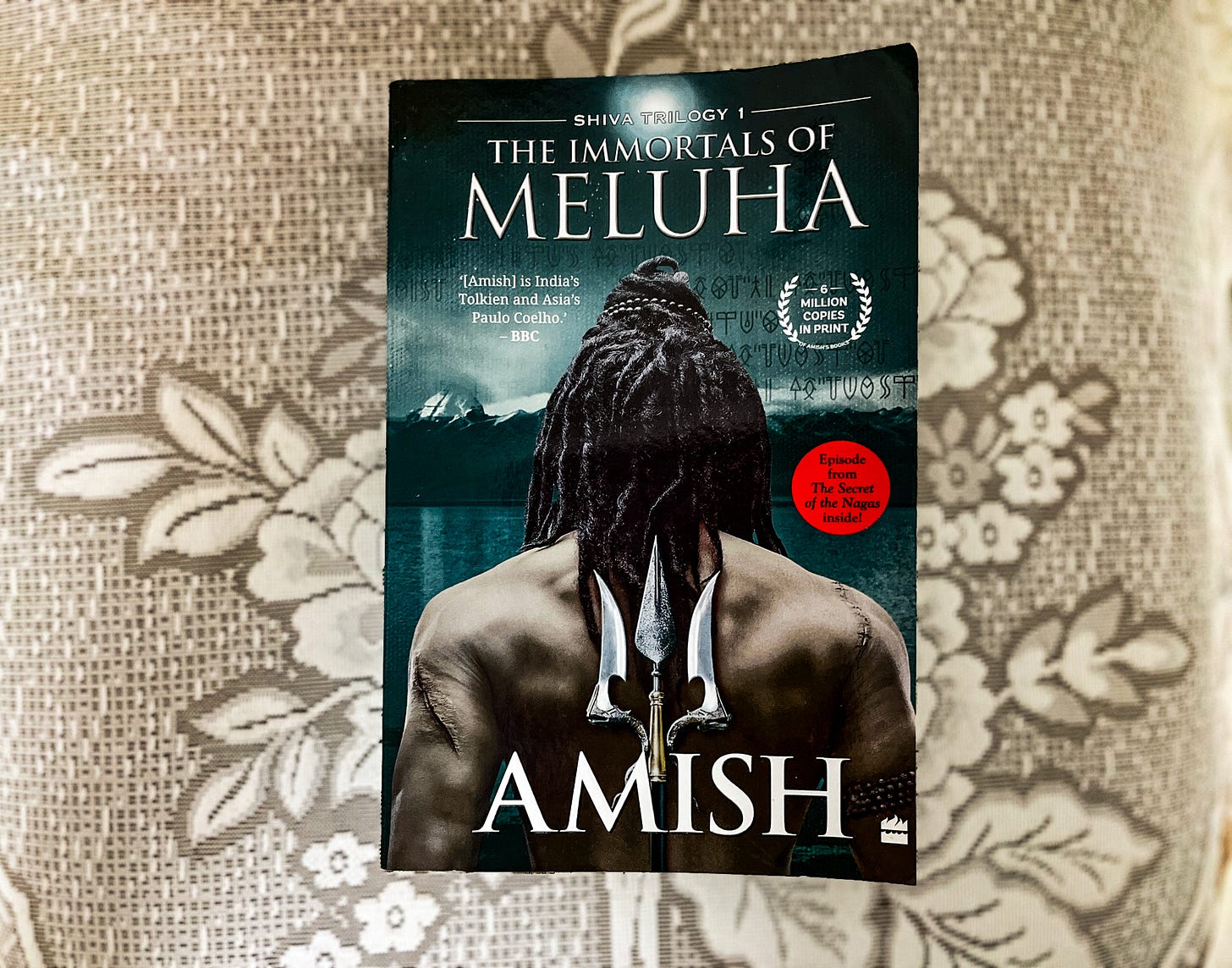Step into the captivating world where the echoes of ancient legends mingle with the allure of mystical realms and the might of formidable deities. In the tapestry of Amish's enchanting novel, "The Immortals of Meluha," I am delighted to embark on a voyage through this extraordinary piece of literary craftsmanship. This work has steered readers into a spellbinding expedition through the domains of fantasy and mythology, leaving an indelible imprint on the senses.
Renowned Indian novelist Amish Tripathi is celebrated for his remarkable prowess in harmonizing age-old mythology with the vibrancy of contemporary literature. Hailing from the bustling city of Mumbai, Tripathi has ascended to literary eminence on the wings of his Shiva Trilogy, with its inaugural gem being "The Immortals of Meluha." In this literary opus, he deftly reinvents mythological narratives, adorning them with innovative tales, authentic characters, and intellectually stimulating concepts. Amish stands as an embodiment of the literary amalgamation of tradition and modernity, his adeptness at seamlessly weaving history, imagination, and philosophy into his narratives endowing his work with an unparalleled depth. Through his literary endeavours, he has not only resurrected curiosity in the tapestry of Indian mythology but also illuminated its essence for contemporary audiences.
As a fervent explorer of literature's realms, I am eager to dive into the depths of "The Immortals of Meluha" and unravel its intricate layers, sharing with you the mosaic of emotions and reflections it has woven into its pages. The novel transports readers to the mythological nation of Meluha, an empire that once flourished but now teeters on the brink of peril due to internal conflicts and external threats. Drawing inspiration from ancient India, the story is set against a backdrop rich in history and culture.
In this realm, the Suryavanshis hold fast to the prophecy of the Neelkanth, a blue-throated saviour destined to appear during the nation's darkest hours. Shiva's entrance, marked by the unexpected transformation of his throat, is believed to fulfill this prophecy. Amid this intriguing premise, the book delves into themes of destiny, sacrifice, and the age-old battle between good and evil. The narrative is intertwined with the significance of the river Saraswati, a symbol central to the kingdom's identity, and the millennia-old traditions of the Suryavanshis that lend a sense of depth to the story's world.
Amish Tripathi's artistry shines brilliantly in the realm of character development within "The Immortals of Meluha." As the tapestry of the story unfolds, readers witness the growth of Shiva from a mere tribal leader to a multifaceted and captivating hero. This transformation is set against a backdrop where a diverse array of characters comes to life, each with their distinct traits and journeys.
Shiva's evolution is a central focal point, as he navigates the trials of leadership, disputes, and battles that shape his destiny. Tripathi's ingenious narrative introduces readers to the intriguing Sati, whose complexities mirror her enigmatic allure. The fearsome warrior Veer Bhadra and the astute Lord Daksha also inhabit this narrative, forming a web of connections that propels the plot forward.
What makes these characters truly compelling is their relatability and aspirational qualities. Their struggles, dreams, and challenges resonate deeply, making them both accessible to the reader and inspirational in their pursuits. This ensemble cast enriches the story, weaving a tapestry of lives intricately bound by fate.
However, while the character building in "The Immortals of Meluha" is undeniably intriguing, the novel is not without its faults. The erratic pacing disrupts the consistent flow of engagement, with critical plot points either stretched out or rushed, resulting in moments of confusion for the reader. Moreover, the didactic tendencies of the narrative are highlighted through explanatory dialogue that can feel intrusive and disruptive, causing a detachment from the immersive experience.
In drawing this review to a close, I stand in awe of the literary prowess displayed within these pages. "The Immortals of Meluha" is a testament to the timeless magic of storytelling. Its pages brim with captivating characters, a plot that ensnares the mind, and a symphony of past and present. Amish Tripathi's work is a tribute to the enduring legacy of tales that transport us beyond the ordinary, and it has earned its place among the literary greats.
As an avid connoisseur of book reviews, I am resolute in my recommendation of this literary gem. Tripathi has conjured a modern classic that commands a rightful place on the bookshelves of all who revel in the splendour of well-crafted storytelling.
As I reluctantly turn the final pages of "The Immortals of Meluha," a sense of eager anticipation stirs within me. The closing of this captivating chapter marks not an end, but a bridge to the next instalment of Amish Tripathi's remarkable trilogy. The promise of further unravelling the tapestry of Shiva's journey, exploring more profound mysteries and witnessing the growth of characters who have become companions on this literary odyssey, leaves me yearning for more. With bated breath, I await the continuation of this enthralling saga, eager to once again immerse myself in the fusion of myth, history, and fantasy that Amish has masterfully conjured.




